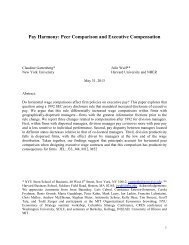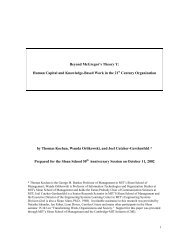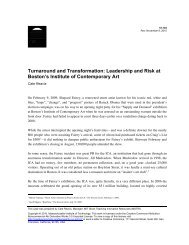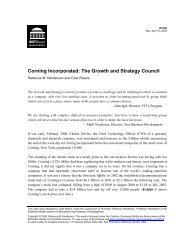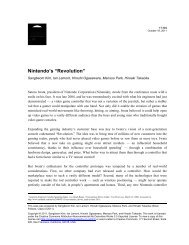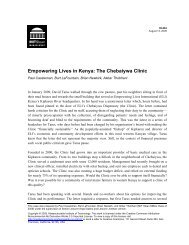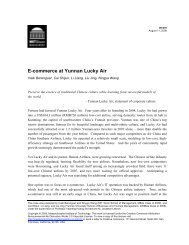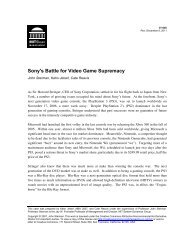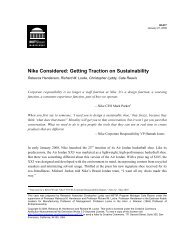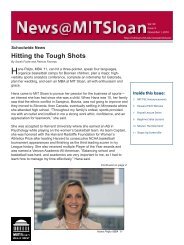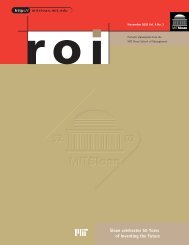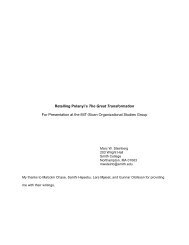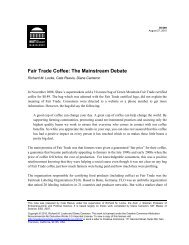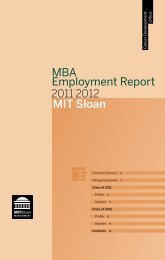Understanding earnings quality - MIT Sloan School of Management
Understanding earnings quality - MIT Sloan School of Management
Understanding earnings quality - MIT Sloan School of Management
Create successful ePaper yourself
Turn your PDF publications into a flip-book with our unique Google optimized e-Paper software.
power such as percentage <strong>of</strong> insiders on board, and debt variables such as the ratio <strong>of</strong> book value <strong>of</strong><br />
debt to the market value <strong>of</strong> equity) are associated with restatements.<br />
Non-audit fees, which are presumed to affect auditor independence and hence may<br />
compromise auditor <strong>quality</strong>, are not associated with restatements on average (Agrawal and Chadha,<br />
2005). Kinney, Palmrose, and Scholz (2004) also find no association between fees for financial<br />
information systems design and implementation or internal audit services and restatements, but they<br />
find some association between fees for unspecified non-audit services and restatements. When using<br />
a sample <strong>of</strong> U.K. firms, Ferguson, Seow, and Young (2004) find a positive association between non-<br />
audit fees and restatements.<br />
Consequences <strong>of</strong> restatements<br />
Managers/Directors: Managers at restatement firms experience significantly higher turnover (Desai,<br />
Hogan and Wilkins, 2006; Hennes et al., 2008) and director turnover (Srinivasan, 2005) than control<br />
firms. Desai et al. (2006) also find that it is more difficult for these displaced managers to find<br />
subsequent employment than displaced managers <strong>of</strong> control firms. Srinivasan (2005) finds that<br />
director turnover rate is higher for more severe restatements and for audit committee directors.<br />
Firm value: Palmrose, Richardson, and Scholz (2004) document an average market-adjusted return<br />
<strong>of</strong> -9.2 percent over a two-day restatement announcement window; the average is -20 percent for<br />
restatements associated with fraud. 33 Lev, Ryan, and Wu (2008) document that the restatements that<br />
33 Desai, Krishnamurthy, and Venkataraman (2006) find that short sellers accumulate positions in restatement firms<br />
before restatement announcements and unwind these positions after stock prices decline due to the restatement. Their<br />
finding suggests that short sellers are able to identify firms that will likely restate in advance <strong>of</strong> the restatement<br />
announcement. It does not, however, explain their assumptions regarding market efficiency. One possibility is that the<br />
short sellers believe the stock is overpriced due to the valuation implications <strong>of</strong> the misstated <strong>earnings</strong>, they expect the<br />
restatement to reveal the mispricing and the price to correct. Another possibility is that the short-sellers anticipate that<br />
markets will react negatively to restatements on average, regardless <strong>of</strong> the implications <strong>of</strong> the restatement for valuation.<br />
More research is needed to interpret the implications <strong>of</strong> this evidence for <strong>earnings</strong> <strong>quality</strong>.<br />
69



